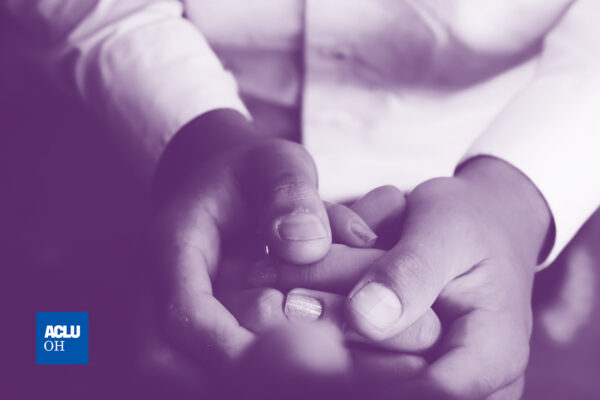Since the U.S. Supreme Court decided to overturn Roe v. Wade on June 24, 2022, we’ve been inundated with horror stories from pregnant people unable to access the essential reproductive healthcare they need. Here in Ohio, the state’s abortion ban, S.B. 23, (which is now temporarily blocked) wreaked havoc on our communities after going into effect just hours of the Dobbs decision. A ten-year-old rape survivor had to flee the state for care. Cancer patients were denied treatment. ER doctors were unable to legally treat a patient’s miscarriage. And while these cases garnered national attention, barriers to reproductive healthcare, especially for Black women and pregnant people, is unfortunately nothing new. The disproportionate impact these barriers have on Black Americans underscore the reality that fight for reproductive freedom is simultaneously a fight for racial justice.
Long before the Dobbs decision, Black Americans have lived at higher risk of poor maternal outcomes than white Americans. According to a 2019 Issue Brief release by National Partnership for Women and Families, Black women in the United States are three to four times more likely than white women to experience pregnancy-related death. A recently released study of more than 2 million births by the New York Times affirms that regardless of wealth or socioeconomic status, Black mothers and babies “have the worst childbirth outcomes in the United States.” The risk of pregnancy on Black women and people capable of pregnancy is undeniably an issue of racial justice.
Unfortunately, we see the same national trends play out in Ohio. The Ohio Department of Health’s most recently released comprehensive study on maternal death from 2008-2018 shows the rate of maternal mortality increased, with more than half of those deaths considered preventable. For Black Ohioans, the reality is even more grim. Black Ohioans are approximately two and a half times more likely to experience pregnancy-related death than white Ohioans.
In the lead up to the Dobbs decision, research indicated that the impact of a national total abortion ban would likely mean an increase in maternal mortality rates. This increase would fall hardest on Black communities – estimating that Black maternal mortality could increase as much as 33%. We know in Ohio that Black women are the most likely demographic to seek abortion care, with 2021 data from the Ohio Department of Health reporting that Black residents comprised nearly 50% of induced abortions. We also know that abortion is an incredibly safe option. As explained by Dr. Alison Norris, Associate Professor at OSU and member of OPEN, abortion is approximately fourteen times safer than giving birth.
Eliminating access to the full spectrum of reproductive healthcare, including abortion access, could force people to carry a potentially risky pregnancy against their will.
Black Ohioans deserve better. Addressing barriers to reproductive healthcare and the disproportionate risks and harms they pose to the Black community is just the first step towards addressing the systemic racism that plagues so much of our society. As we reflect on Black History Month during the Post-Roe era, it’s more crucial than ever to center the communities most impacted by barriers to reproductive healthcare. Every person, regardless of race, socioeconomic status, or geographic location, should have the right to decide their own future and what happens to their bodies. As we fight for reproductive freedom for all, we center the communities most impacted by abortion bans and other barriers to care.
Last fall, the ACLU of Ohio joined Wilberforce University and Alpha Phi Alpha Fraternity,Inc., in their ongoing effort to lobby the state of Ohio to declare racism a public health crisis. Through this work, we aim for the state to put forth the resources necessary to eradicate systemic racism on fronts, including in the realm of reproductive healthcare. This work continues, and you can join our fight by signing up to join the Action Team.

